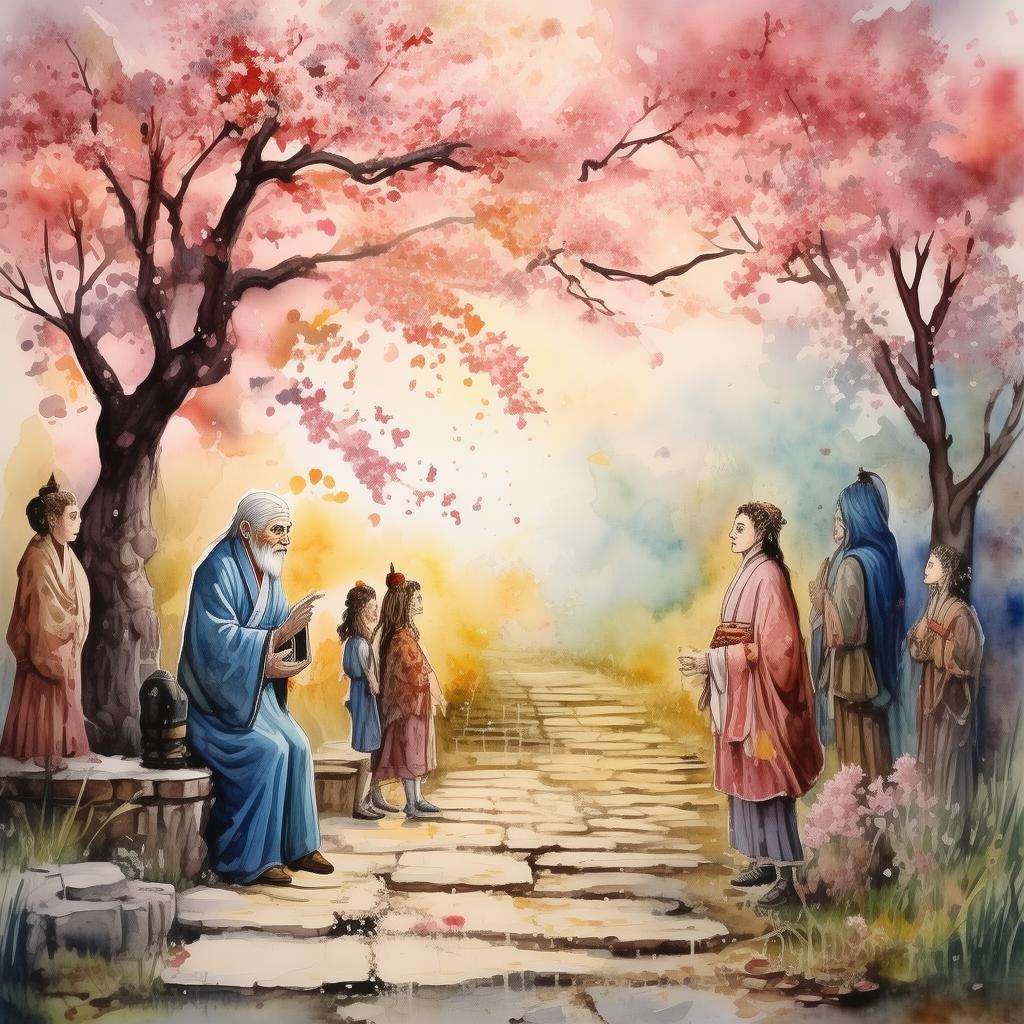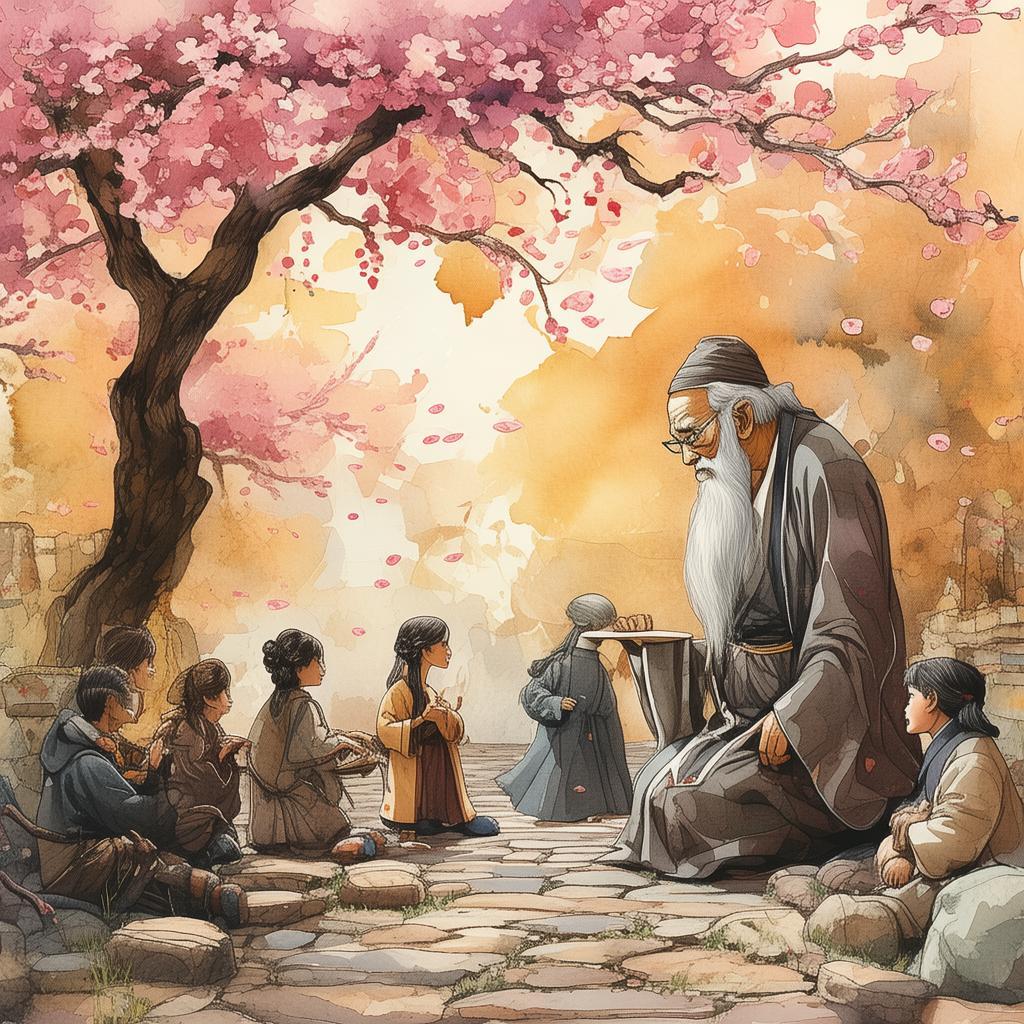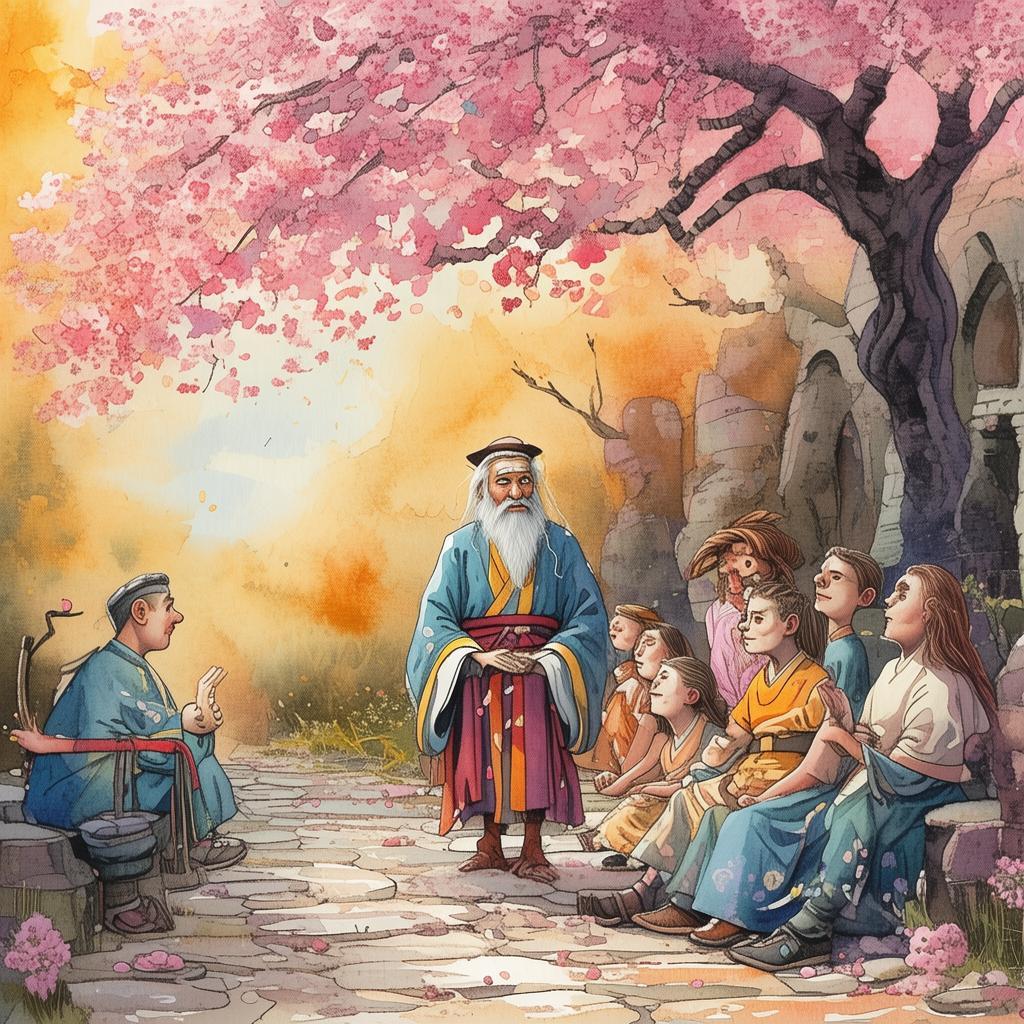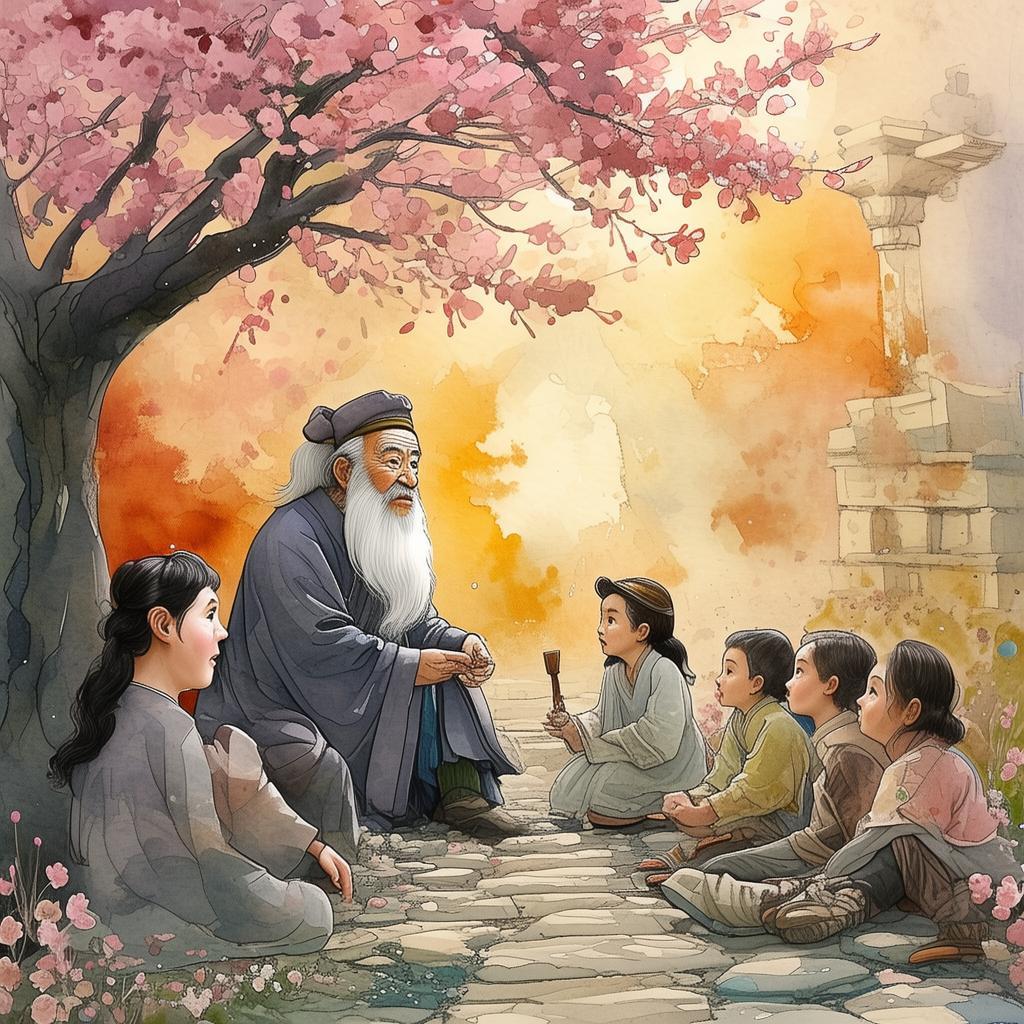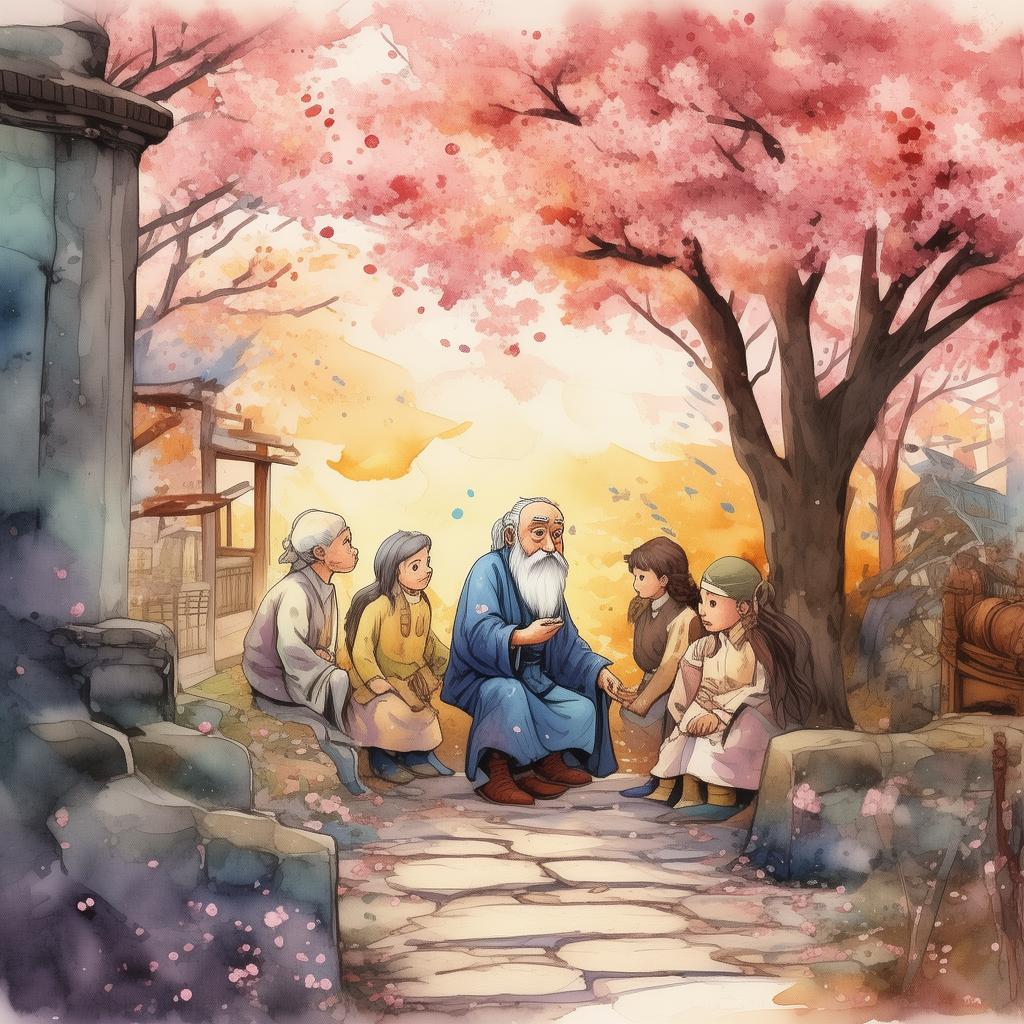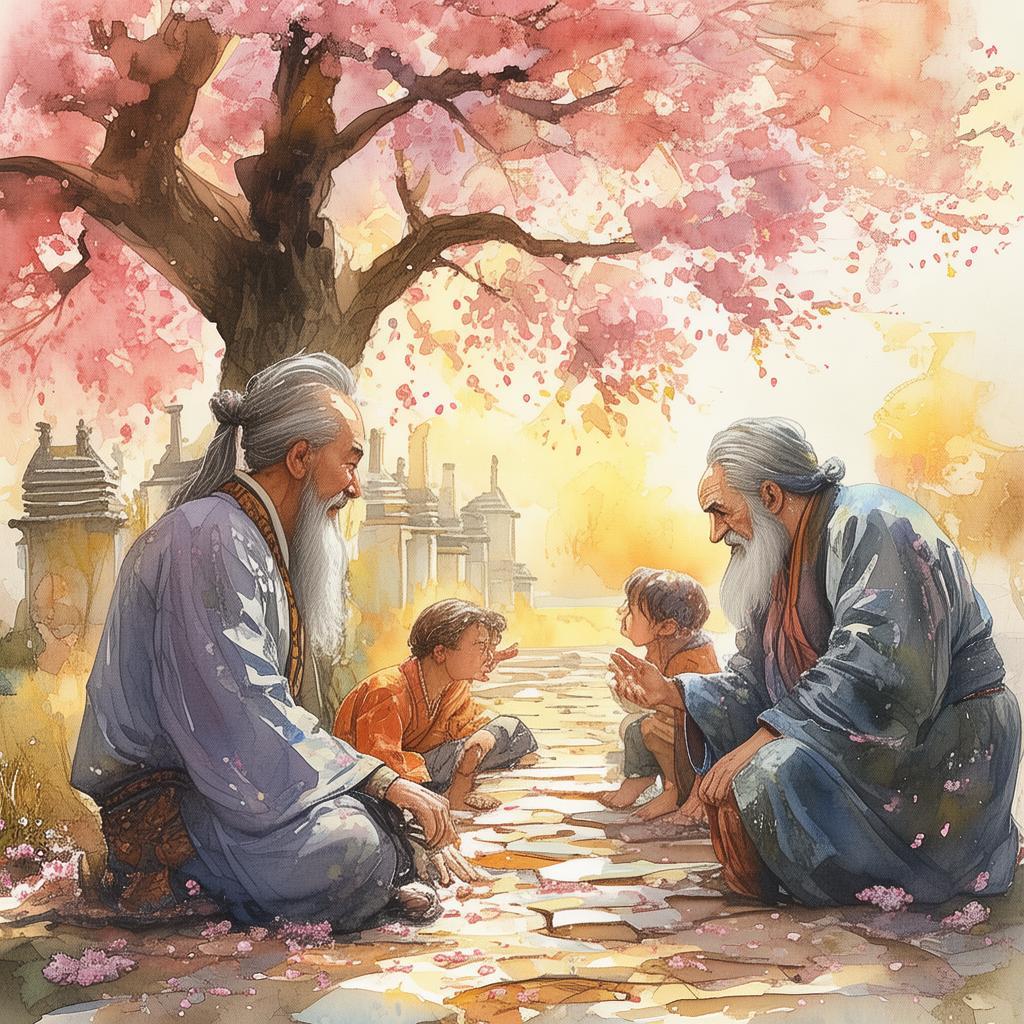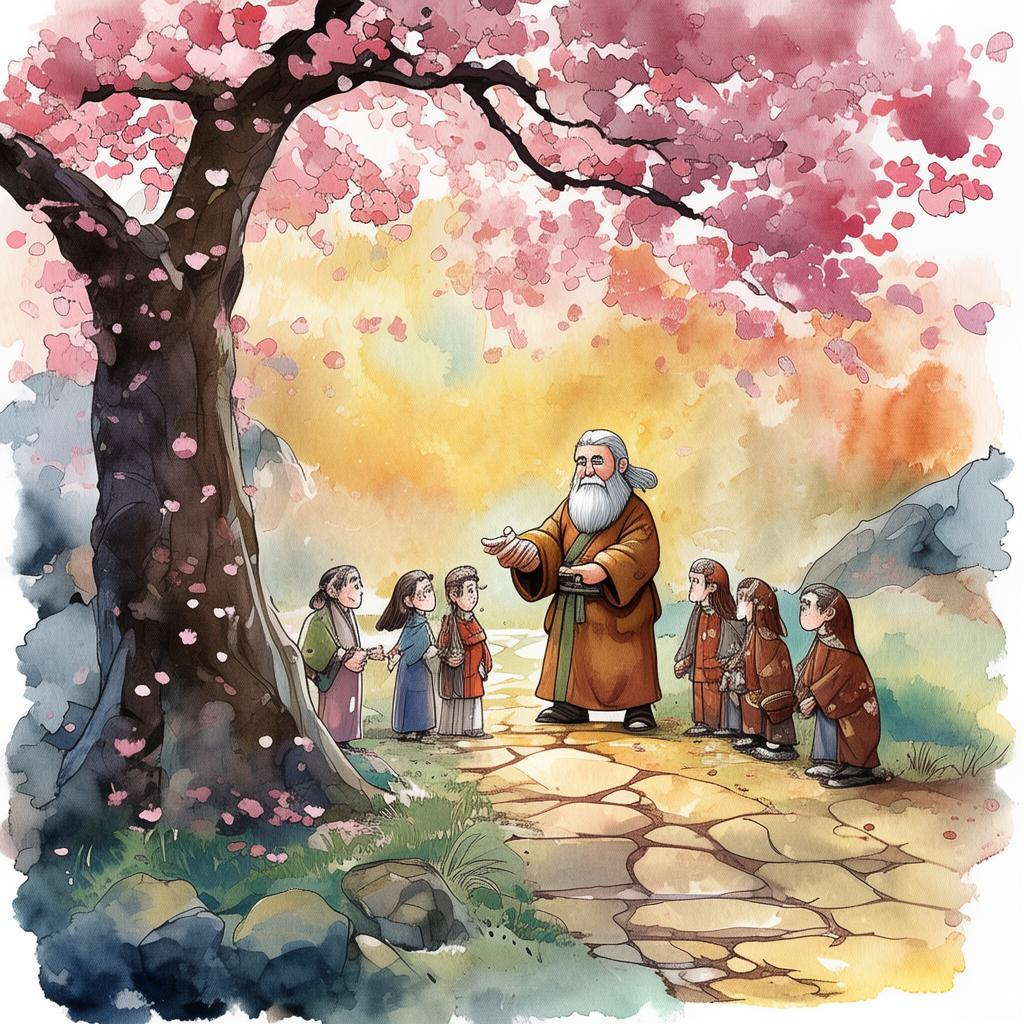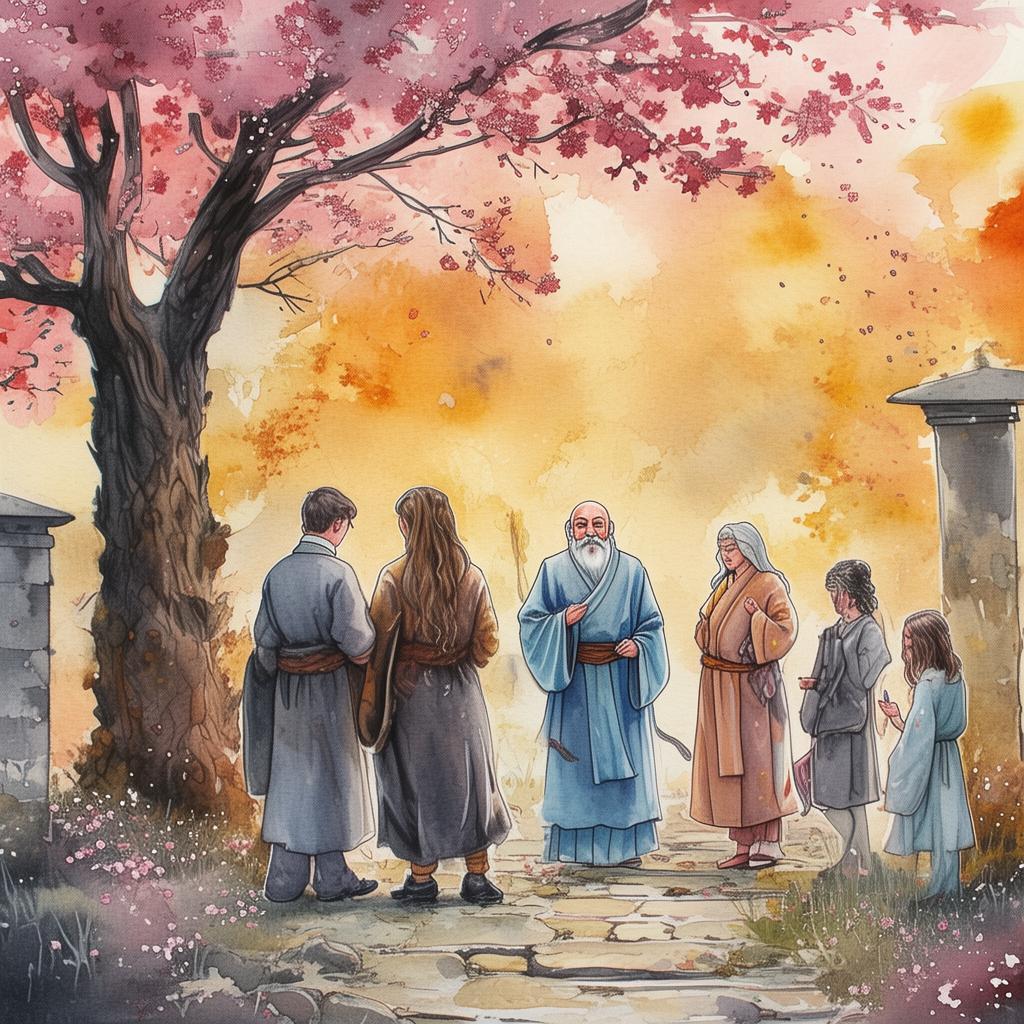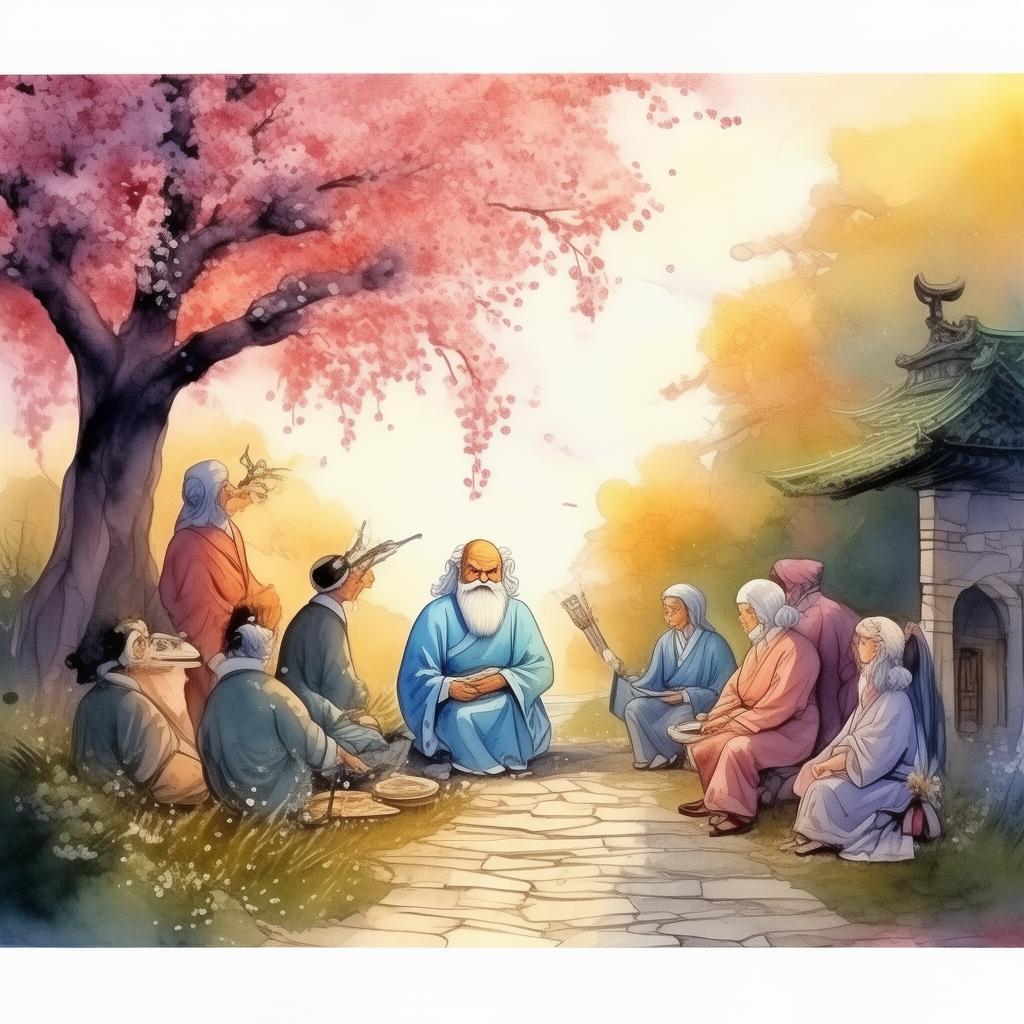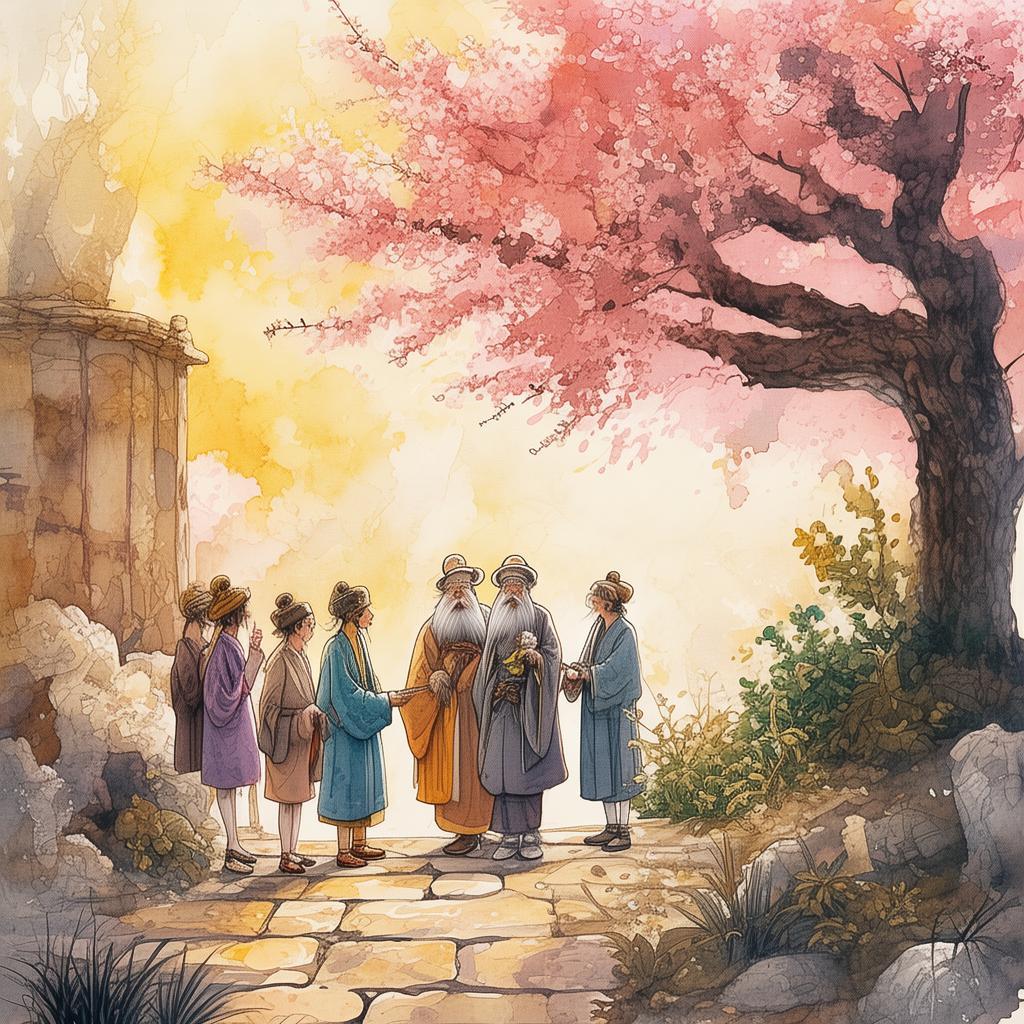Li Xīn Wǔ Paradox: The Ancient's Paradox of the Heart's Desire
In the bustling city of Chang'an during the Tang Dynasty, there lived a young scholar named Li Xīn. Known for his sharp wit and profound knowledge, Li Xīn was often sought after for his wisdom. One day, while poring over ancient texts in the serene library of the Imperial Academy, he stumbled upon a peculiar paradox.
The paradox was known as the "Lì Xīn Wǔ Paradox," a proverbial riddle that had baffled scholars for centuries. It read:
"A man wishes for wealth, but wealth brings him sorrow.
A man wishes for fame, but fame brings him envy.
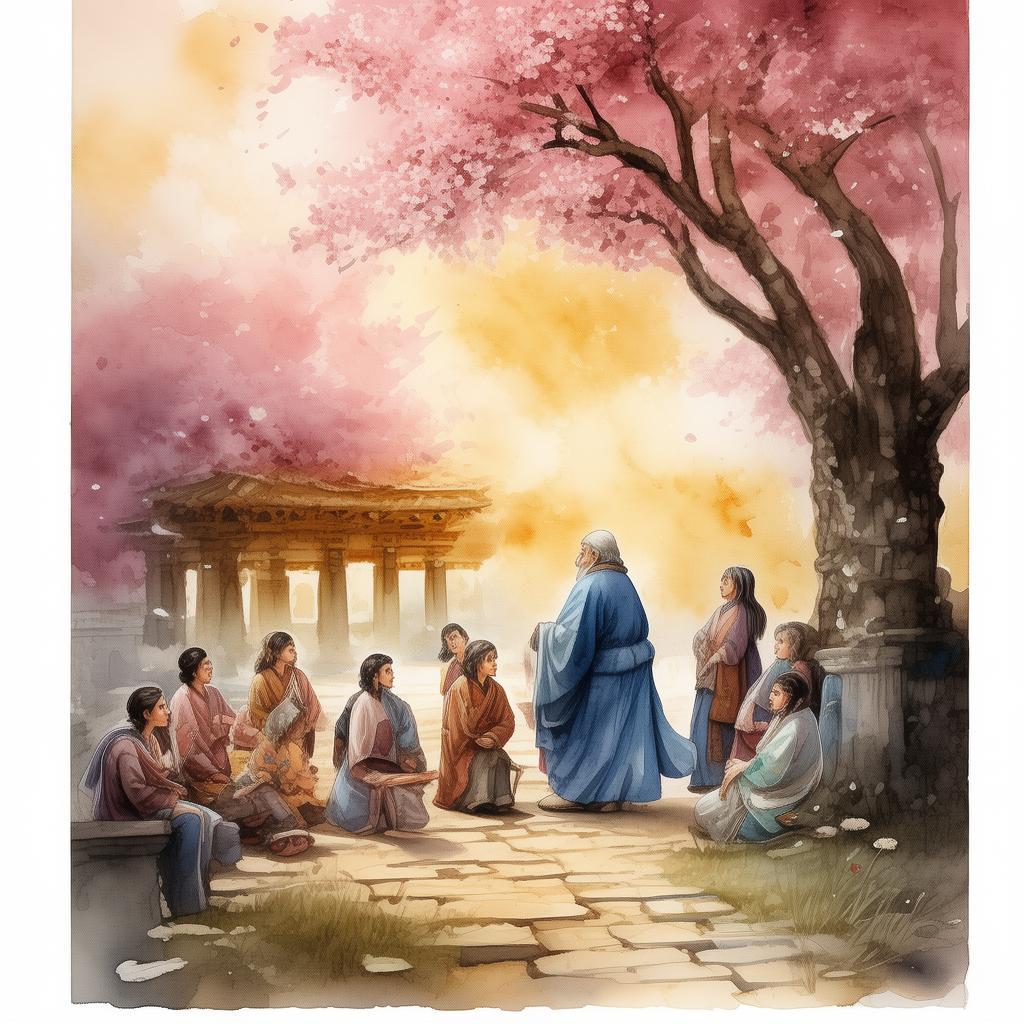
A man wishes for love, but love brings him pain.
Thus, the heart's desire is a paradox."
Intrigued and puzzled, Li Xīn realized that this paradox was not just a riddle but a mirror reflecting the human condition. He knew that to solve this paradox, he must embark on a journey to uncover the truth behind the heart's deepest desires.
Li Xīn's journey began in the bustling markets of Chang'an, where he met a merchant who had accumulated great wealth. The merchant, though prosperous, seemed perpetually sorrowful. Li Xīn listened intently as the merchant recounted his tale of loss and regret, realizing that wealth, while providing comfort, also brought with it the burden of responsibility and the fear of losing it all.
Next, Li Xīn visited the court of the Emperor, where he encountered a man of great fame. The man, though revered, was surrounded by envy and jealousy. Li Xīn witnessed firsthand how fame, while a source of pride, could also be a source of isolation and the erosion of genuine friendships.
Finally, Li Xīn sought out a renowned poet, who was known for his love of beauty and music. The poet, though in love, was often consumed by the pain of unrequited affection. Li Xīn understood that love, while the most beautiful of emotions, could also be the most painful.
As Li Xīn journeyed through the land, he encountered many more individuals, each with their own stories of joy and sorrow, wealth and fame, and love and pain. He began to see that the paradox was not about the nature of the desires themselves, but about the human tendency to seek fulfillment in external things, rather than in the inner peace and contentment that true happiness brings.
One evening, as the sun set over the Great Wall, Li Xīn sat down to reflect on his experiences. He realized that the paradox was a lesson in humility and self-awareness. It was not about avoiding desires, but about understanding that true happiness lies in the balance between seeking and accepting the natural ebb and flow of life's experiences.
With this newfound understanding, Li Xīn returned to the Imperial Academy, where he shared his insights with his fellow scholars. They were moved by his journey and the wisdom he had gained. The "Lì Xīn Wǔ Paradox" was no longer a riddle to be solved, but a profound truth to be lived.
The story of Li Xīn and the Lì Xīn Wǔ Paradox spread far and wide, becoming a timeless tale of self-discovery and the pursuit of true happiness. It served as a reminder that the heart's desire is a paradox, but it is also the key to understanding the human experience.
In the end, Li Xīn's journey was not just about solving a riddle, but about finding his own path to inner peace and contentment. The Lì Xīn Wǔ Paradox, once a source of confusion, had become a guiding light, illuminating the path to a life of fulfillment and understanding.
✨ Original Statement ✨
All articles published on this website (including but not limited to text, images, videos, and other content) are original or authorized for reposting and are protected by relevant laws. Without the explicit written permission of this website, no individual or organization may copy, modify, repost, or use the content for commercial purposes.
If you need to quote or cooperate, please contact this site for authorization. We reserve the right to pursue legal responsibility for any unauthorized use.
Hereby declared.
